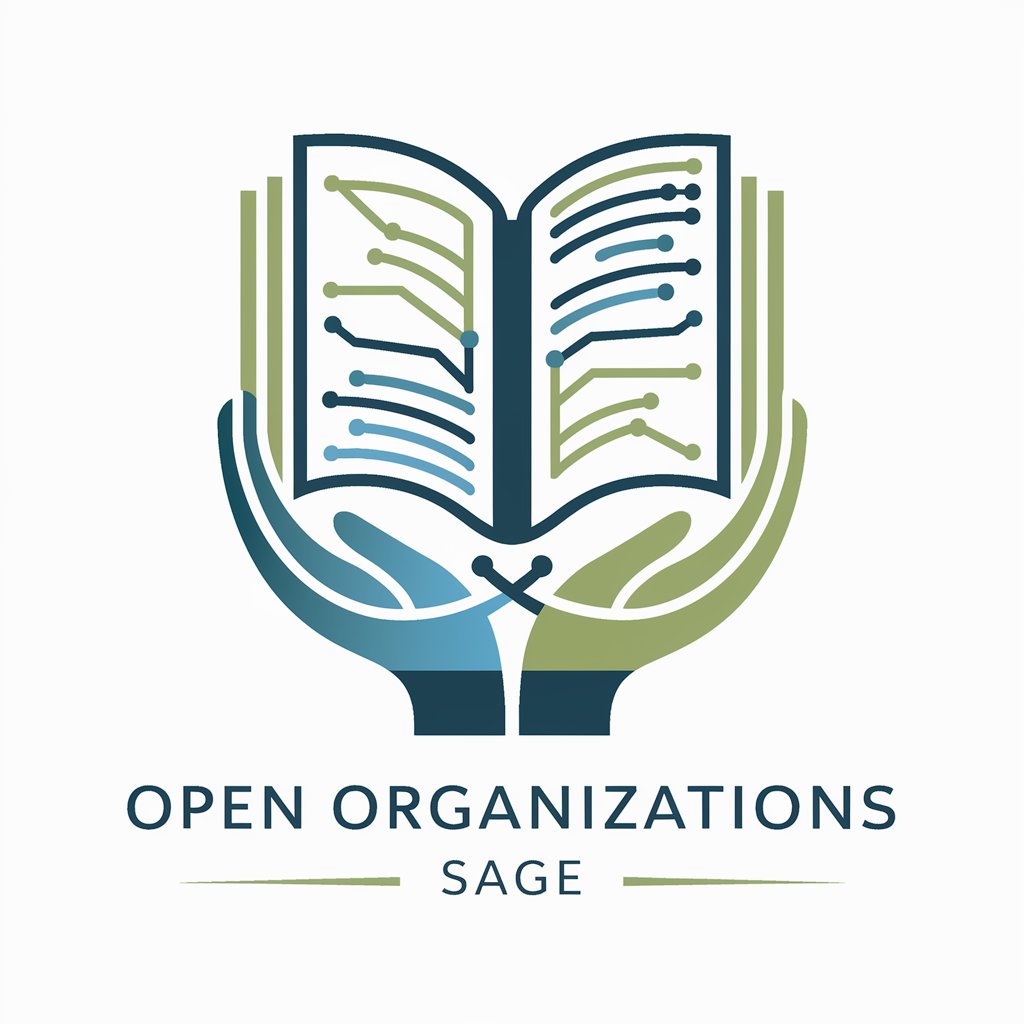
Organizational behavior - Insights into Human Dynamics

Empowering Teams with AI-Driven Insights
Get Embed Code
Introduction to Organizational Behavior
Organizational Behavior (OB) is a study that investigates the impact of individuals, groups, and structures on behavior within organizations, aiming to improve organizational effectiveness. It encompasses the analysis of how employees' attitudes and performance contribute to the organization's goals. For instance, Flipkart's approach to maintaining good employee relationships through various employee benefits illustrates OB's application in fostering a positive work environment and work-life balance. Powered by ChatGPT-4o。

Main Functions of Organizational Behavior
Improving Job Satisfaction
Example
Through understanding employee needs and motivations, OB helps in creating policies that enhance job satisfaction, leading to higher productivity and reduced turnover.
Scenario
A company implements flexible work schedules after recognizing its impact on employee satisfaction through an OB study, resulting in improved employee morale and reduced absenteeism.
Enhancing Team Performance
Example
OB utilizes group dynamics and team development principles to facilitate better collaboration and teamwork within the organization.
Scenario
An organization uses OB principles to form cross-functional teams, encouraging diverse skill sets and perspectives to solve complex problems, leading to innovative solutions and increased efficiency.
Facilitating Organizational Change
Example
OB provides insights into managing change by understanding employee resistance and creating strategies to effectively implement change.
Scenario
A company planning a major organizational restructuring uses OB techniques to understand employee concerns, communicate effectively, and gain support for the change, ensuring a smoother transition and better alignment with organizational goals.
Ideal Users of Organizational Behavior
Managers and Leaders
Managers and leaders use OB to understand, predict, and influence employee behavior, enhance team performance, and lead organizational change effectively.
Human Resources Professionals
HR professionals apply OB principles in various functions like recruitment, training, performance management, and employee engagement to build a motivated and effective workforce.
Organizational Development Consultants
These consultants use OB to diagnose organizational problems, design effective interventions, and facilitate change to improve organizational health and effectiveness.

Guidelines for Utilizing Organizational Behavior
Initiate Exploration
Begin by visiting a comprehensive platform offering in-depth insights into Organizational Behavior without the necessity for immediate payment or account creation.
Identify Objectives
Clearly define your objectives for studying Organizational Behavior, such as improving team dynamics, enhancing leadership skills, or understanding employee motivation.
Apply Theoretical Knowledge
Apply theories and concepts of Organizational Behavior to real-world scenarios within your organization to diagnose issues, understand employee behavior, and plan interventions.
Engage in Continuous Learning
Regularly seek out new research, case studies, and advanced methodologies in Organizational Behavior to stay updated and apply contemporary practices.
Evaluate and Adjust
Consistently evaluate the outcomes of applied Organizational Behavior strategies and be willing to adjust approaches based on feedback and results.
Try other advanced and practical GPTs
Sensei
Master Japanese with AI-powered guidance.

キャラクリGPT
Bringing Your Characters to Life with AI

AIキャラメーカーくん
Bring your characters to life with AI

'Save the Cat!' by Blake Snyder GPT
AI-powered screenplay perfection.

Trend Finder
Decoding Chinese Internet, AI-Powered

3D Felted Fiber Art
Crafting Imagination with AI-Powered Fiber Art

Organizational Behavior Tutor
AI-powered Organizational Behavior Insights

Item Size Estimater for Self Storage
Optimize your storage with AI-powered precision.

Generate Hypnosis Scripts Free 🌀
AI-powered personalized hypnotherapy scripts.

English Assistant
Empower your English with AI

Idea Forge
Empowering Your Ideas with AI Insights

insta idea
Unleash Creativity, Power Your Content

Organizational Behavior Q&A
What is the significance of Organizational Behavior?
It provides a roadmap for understanding, predicting, and managing human behavior in organizations, thereby enhancing organizational effectiveness and employee satisfaction.
How does Organizational Behavior impact leadership?
It equips leaders with the insights to motivate teams, manage conflicts, and foster a positive organizational culture, leading to improved performance and innovation.
Can Organizational Behavior reduce workplace conflict?
Yes, by applying its principles, managers can identify the root causes of conflicts, understand employee perspectives, and implement strategies for resolution and harmony.
How does diversity affect Organizational Behavior?
Diversity brings varied perspectives and creativity, but also challenges in communication and integration. Organizational Behavior provides strategies for leveraging diversity effectively.
Is Organizational Behavior relevant to small businesses?
Absolutely, understanding and applying its principles helps small businesses in optimizing team dynamics, enhancing motivation, and navigating growth challenges.




